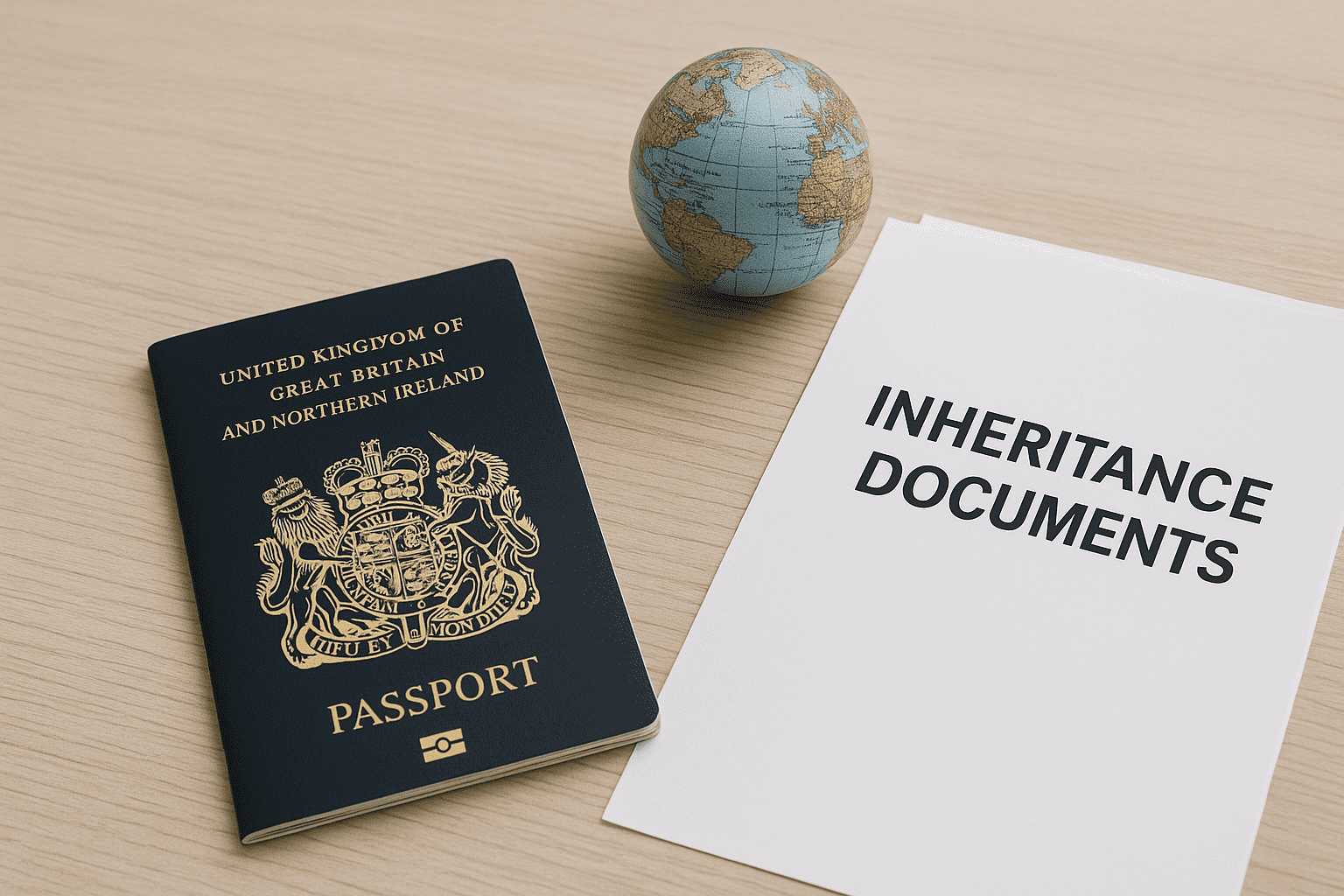At the recent MCCI (Miracle Christian Centre International) Church Retreat, someone asked a great question:
“If you live in the UK and inherit money or property from abroad, do you have to pay Tax here?”
It’s a common worry — especially when large sums are involved — and many people aren’t sure whether HMRC could tax what they receive.
Let’s clear it up in simple terms.
1. You Don’t Pay UK Tax Just for Receiving an Inheritance
Whether the inheritance comes from Jamaica, for example, or anywhere else overseas, you don’t pay UK tax simply because you receive money or property.
Two points explain this clearly:
- UK does not tax the beneficiary.
You do not pay UK Inheritance Tax (IHT) just for receiving an inheritance. - The UK only taxes the Estate if the person who died was UK-domiciled.
If the person lived abroad and their permanent home (“domicile”) was outside the UK, the UK does not apply IHT to their foreign estate.
So if the person who passed away was domiciled in Jamaica, their Jamaican assets are not subject to UK IHT.
This means you could inherit £10,000 or £500,000 from abroad — the UK does not tax the act of receiving it.
What can be taxed later is:
- any income earned from the inheritance (like rent or interest), or
- any capital gains made when you sell inherited property.
But the inheritance itself is tax-free in the UK in almost all cases.
2. When Inheritance Tax (IHT) Might Apply
Inheritance Tax is paid by the Estate, not the person receiving the money.
Whether it applies depends on where the deceased was domiciled.
- If they were UK-domiciled:
Their worldwide estate is within the UK IHT system. - If they were non-UK-domiciled (for example, Jamaican):
The UK only taxes their UK-situated assets.
Their Jamaican estate is outside UK IHT completely.
So, in most overseas inheritance situations, no UK IHT applies at all.
3. Income Tax and Capital Gains Tax – The Real Area to Watch
Although receiving the inheritance isn’t taxable, future earnings from it may be.
- If you inherit cash:
No tax when you receive it.
But interest or dividend income later is taxable. - If you inherit overseas property:
No tax when you receive it.
But rental income or profit on sale is taxable for UK residents because the UK taxes worldwide income and gains.
Example
You inherit a house in Jamaica worth £200,000.
You rent it out and earn £5,000 a year — you must declare that to HMRC.
If you sell it for £260,000, the £60,000 gain is subject to UK Capital Gains Tax (with credit for Jamaican tax if paid).
4. There Is No Limit on How Much Inheritance You Can Bring Into the UK
You can transfer any amount of inherited money from abroad into the UK.
There is no threshold — not £50,000, not £100,000 — that triggers a UK tax charge simply because the money arrives here.
What matters is the source of the money, not the size of the transfer.
- If it came from inheritance, the UK does not tax the amount you bring in.
- If the funds later earn income (interest, rent, dividends), that income is taxable.
- If the funds came from foreign income or gains, those may need to be declared — but the transfer itself does not create tax.
Your bank may ask for proof under anti-money laundering rules, but that is separate from tax and does not generate a tax bill.
So, whether you transfer £10,000 or £1 million from overseas, HMRC does not tax the act of bringing inheritance into the UK.
5. Double Taxation Relief
If tax was already paid abroad — for example, estate tax in Jamaica, the UK gives a foreign tax credit, so the same value isn’t taxed twice.
Keep:
- Probate documents
- The Will
- Death certificate
- Receipts for any local taxes
These help evidence the source of the inheritance.
6. Do You Need to Tell HMRC About a Large Transfer from Abroad?
Not automatically.
There is no requirement to notify HMRC just because you’re receiving a large payment into the UK.
You only need to report it if the funds include:
- Income (foreign rent, interest, dividends), or
- Capital gains (profit from selling assets).
Example
You inherit £150,000 — no reporting.
You invest it and earn £5,000 — you report the £5,000, not the £150,000.
Your bank may still ask questions under anti-money laundering rules.
That’s normal — just provide proof of the inheritance.
If you receive means-tested benefits, you may also need to inform the relevant benefits office (such as Universal Credit or Housing Benefit), as lump sums can affect your entitlement.
This is separate from HMRC and relates to benefits rules, not Tax.
7. Practical Tips
- Keep documents proving the inheritance source.
- Keep the money separate from other income for clarity.
- Track any income or gains produced later.
- Get advice before selling or transferring overseas property.
8. Key Takeaway
Receiving inheritance from abroad doesn’t automatically create a UK tax bill.
The key factors are where the person who died was domiciled and what you do with the inheritance afterwards.
If you’ve received or expect overseas inheritance, book a paid Cross-Border Tax Review with us — we’ll confirm what’s taxable, what’s not, and how to stay compliant.
Related reading:
- How Foreign Income Is Taxed in the UK: A Guide for Residents
- Using Trusts to Manage Property Tax – What You Need to Know
Prefer to Watch?
Receiving Inheritance from Abroad – What UK Residents Need to Know
